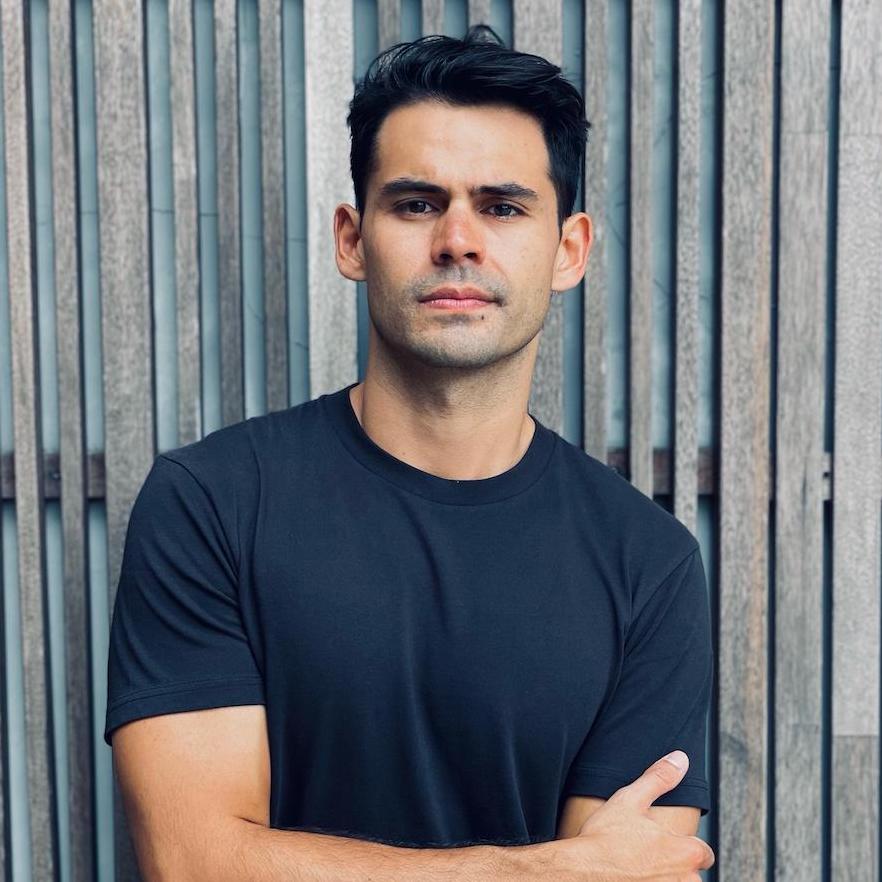With a fast-spreading virus, solutions must be equally as swift. Enter Kopernik, a research and development lab whose fast-paced innovations have helped curb the effects of Covid-19 in Bali.
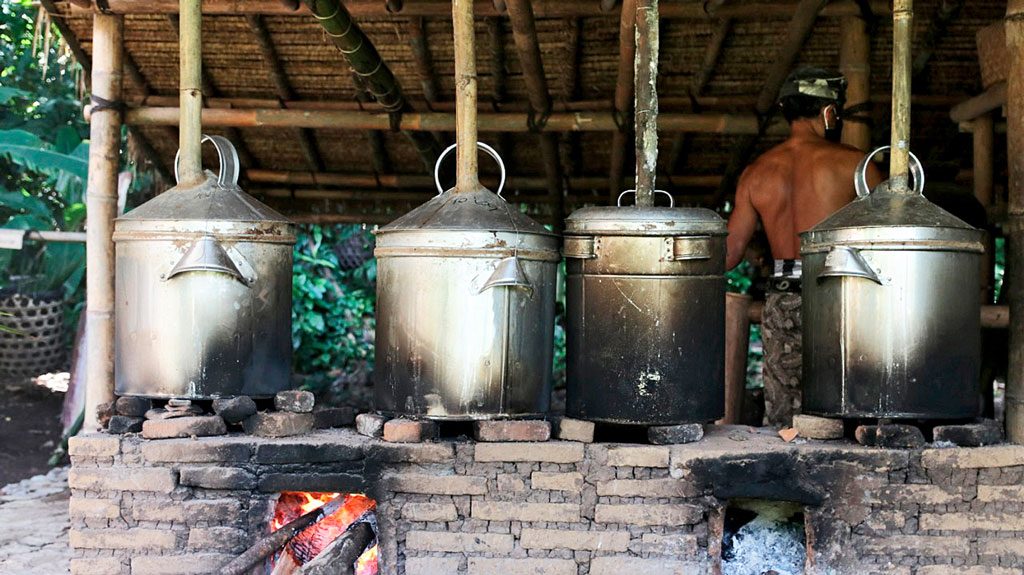
With many countries around the world struggling with resources during the spread of Covid-19 – such as hand sanitisers and face masks on an individual level, or hospital beds and ventilators at an institutional level – worries around Bali’s ability to deal with the virus were more than understandable.
The recipe for disaster was set, including ingredients such as a large informal employment sector, meaning low-income people unable to socially distance or afford even basic personal protective equipment; as well as underprepared healthcare systems and institutions.
What was not accounted for, however, was how private institutions and community groups would mobilise to quash these initial worries.
One of the private institutions leading the way is Kopernik, a research and development lab who, traditionally, create or distribute technological solutions to help reduce poverty in Indonesia. They have long worked to improve the lives of the ‘underserved and disadvantaged people’ of the country.
Kopernik works closely with those they are trying to empower. What this means is that they are able to identify needs directly, create solutions on that research, and then distribute or implement those solutions efficiently.
Some of their work previous work includes providing solar-powered drying and fermentation boxes to cacao farmers in Bali (along with training/capacity building), helping them to increase the value of their product and sell their cacao at a higher price. Or working with fishing communities, whereby they replaced fisherman’s styrofoam boxes – used to transport fish – with sustainable, insulated containers with reusable freeze packs. What this did was increase the shelf-life of their containers from six-months to around ten-years, as well as reduce the chill time of the freeze packs and reduce refrigeration space needed.
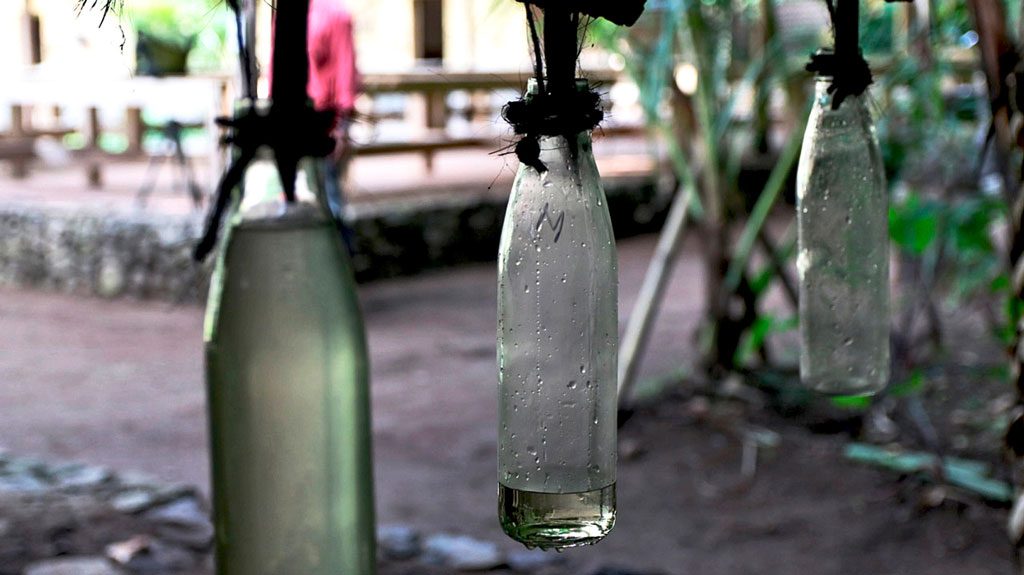
Other projects include developing solar-powered lanterns for rural communities, solar desalination, experimenting with natural pesticide alternatives and creating a filter to increase honey filtration efficiency. The list goes on.
So, what does any of this have to do with Covid-19?
A good question. Kopernik’s methods of outreach makes them incredibly efficient when it comes to disaster response and relief. Those same components of: identifying problems, coming up with and developing solutions and finally distributing them are the exact components needed in relief efforts. Their extensive networks help them to identity real needs and respond quickly.
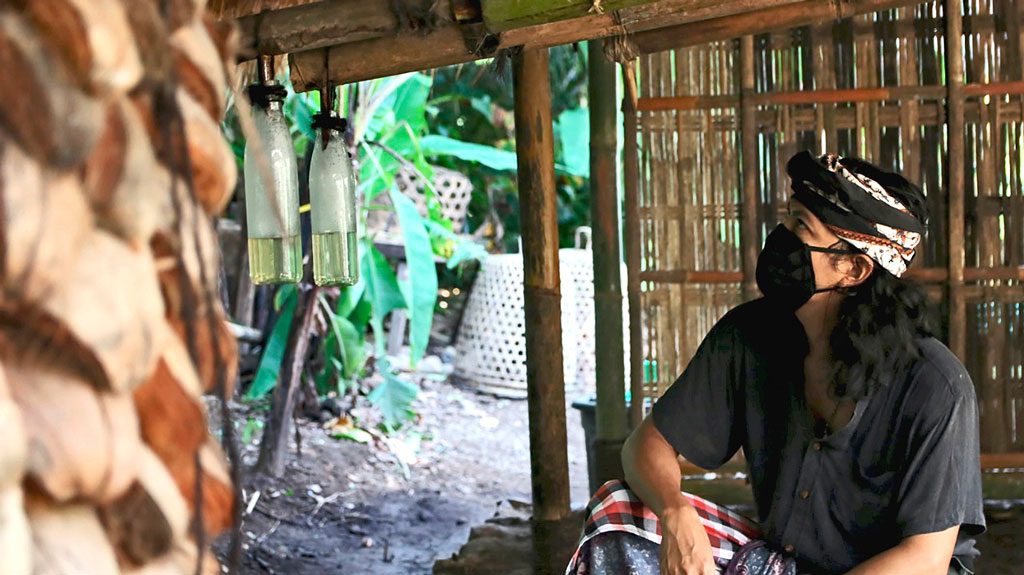
Covid-19 is by no means Kopernik’s first disaster relief rodeo. The organisation helped to distribute water filters, solar lights, emergency and hygiene kits, as well as food supplies to those in need for the Sunda Strait Tsunami, Central Sulawesi earthquake, Lombok earthquake and Mt Agung eruption. In incidents related to forest fires in both Sumatra and Kalimantan, Kopernik provided low-cost solutions to curb respiratory health effects, such as masks and air purifiers.
So, when Covid-19 struck Bali (and the rest of Indonesia), the organisation had the systems and infrastructure in place to help the vulnerable and in need.
At time of writing, Kopernik has provided and/or distributed 1,000 pieces of personal protective equipment (gloves, goggles, face shields etc), 3,800 N95 respiratory masks, 150 litres of sanitiser and 10,080 bars of soap. These have been distributed to medical centres, hospitals, markets, banjars (for further distribution) and low-income communities, working together with the national task force for Covid-19.
Whilst there are a few organisations and community-driven initiatives that have donated the above, perhaps what is most interesting is the innovation side of Kopernik’s work. Namely the creative ways in which they were able to create another resource for sanitisers and how effective design was used to produce face shields for medical workers.
An Alternative Arak
Around the world there have been examples of organisations repurposing their production lines to create sanitisers – such as beer company Brewdog or luxury conglomerate LVMH – Kopernik sought to find their own solution to empower a local industry.
Partnering with Samsara, a local arak producer in Karangasem regency, East Bali, Kopernik are utilising the arak-making skills of around 100 producers in the area. Arak is a local spirit, made from either rice, Palmyra palm, cassava or coconut – a favourite libation for local Balinese. Samsara and Kopernik however have asked the producers to create a 96% ethanol alcohol solution, utilising the same natural ingredients.
Having received the alcohol solution from Samsara and the arak farmers, they then passed this on to two body and skin care companies, Embun and Utama Spice. Here, the two companies will further process the alcohol, reducing it to 76% alcohol and creating a consumer-friendly hand sanitiser. This is then passed back to Kopernik who distribute to banjars, markets and medical facilities.
Face-to-Face with Corona
One of the main issues public hospitals and medical centres have been facing is the shortage of medical supplies, mainly Personal Protective Equipment (PPE) for medical workers.
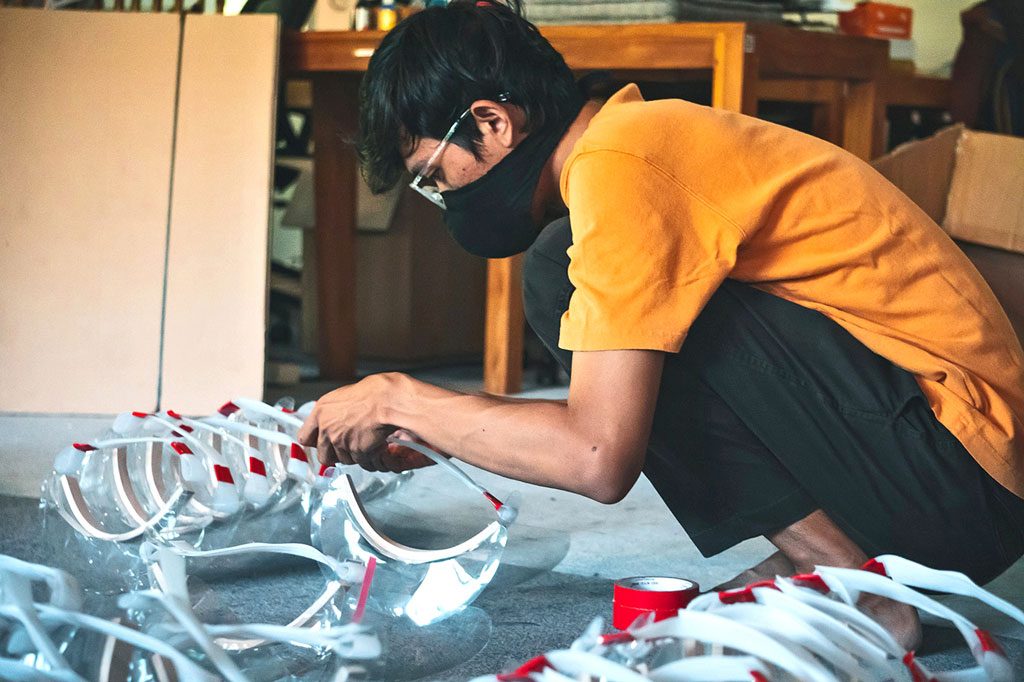
Whilst coveralls, gowns, gloves, and head and shoe covers were somewhat available, there has been a nation-wide shortage of face shields, said to be instrumental in protecting medical personnel working directly with Covid-19 patients.
With that, Kopernik took to their Solutions Lab, thinking of ways to produce their own face shields rather than depend on market availability. Their senior analyst, Cokorda Gede Bagus Suryanata (Cok) conducted research on the face shield requirement and developed an initial design. This first design utilised a 3D printer (Fused Deposition Modelling [FDM] machine), however this could only produce one face shield per hour. They continued to expirment with different plastic sheets, polycarbonate materials, laster cutting methods and more, finding that material availability and also environmental side effects made them unfeasible.
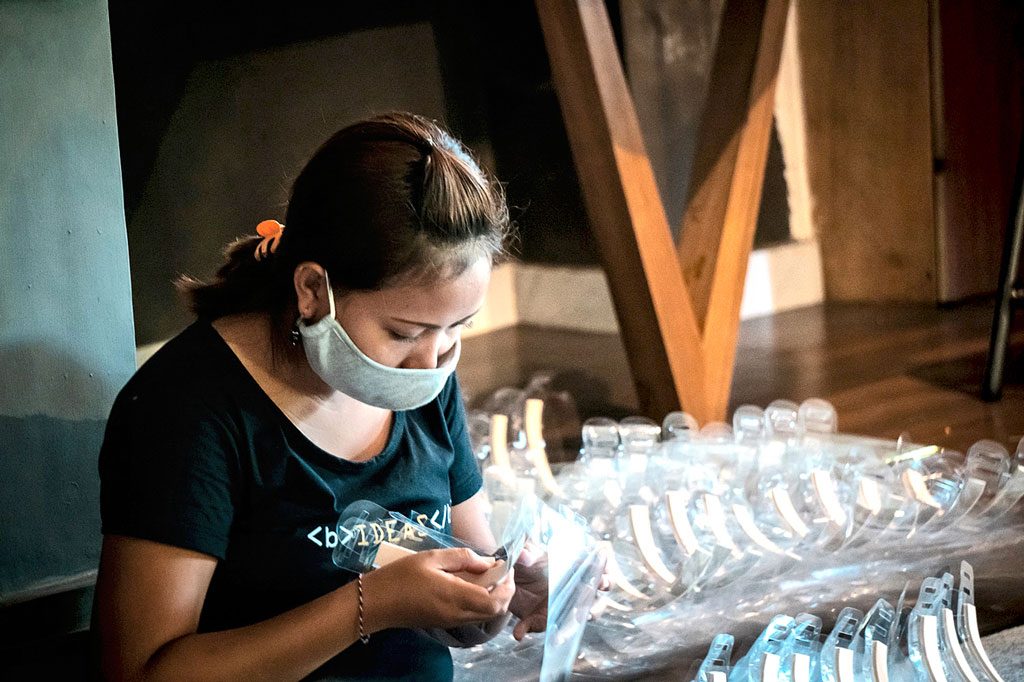
Finally, they settled on using PVC sheets shaped through the die cutting method, which sky-rocketed their production speed to 3,200 components in 3 days. From there, it takes around 4-minutes for their team to assemble the components and complete one face shield. Kopernik is now working to produce 4,000 face shields in their office in Ubud; the designs have been approved by the Covid-19 Bali Special Task Force and are being distributing to health facilities around Bali.
The Role of Innovation
Clearly, Kopernik has shown resolve in their efforts to tackle the key insufficiencies around Covid-19 in Bali. Where many may have stopped short when items became unavailable, the organisation turned to innovation, design and of course effective partnerships to overcome these hurdles.
Their objectives in the design stage are important. They have a lean experimentation approach, which means they can find effective solutions in a short period of time. Furthermore, what they note is important – not only in disaster relief but also their usual work – is a relatively low investment to create such technologies. Further to that, all of their solutions must be tested for their effectiveness before being implemented at a large scale.
However, even if they are incredibly effective with their own work and initiatives, keeping the ‘Covid curve’ low is of utmost importance. Kopernik shares that through their field research they notice “many people still have limited knowledge about the dangers of the virus and how to prevent its spread and many people are not adhering to the physical distancing and staying at home policies.”
That’s why, outside of innovation, Kopernik has partnered with Alam Santi, and many volunteers to develop and implement the #AmanDariCovid19 initiative, a public education campaign to provide trustworthy information and increase knowledge among the general public. Further to that, in order to bolster the many initiatives tackling Covid-19 in Bali, they have also started a coordination group which includes organisations and individuals who communicate on a weekly basis through conference calls.
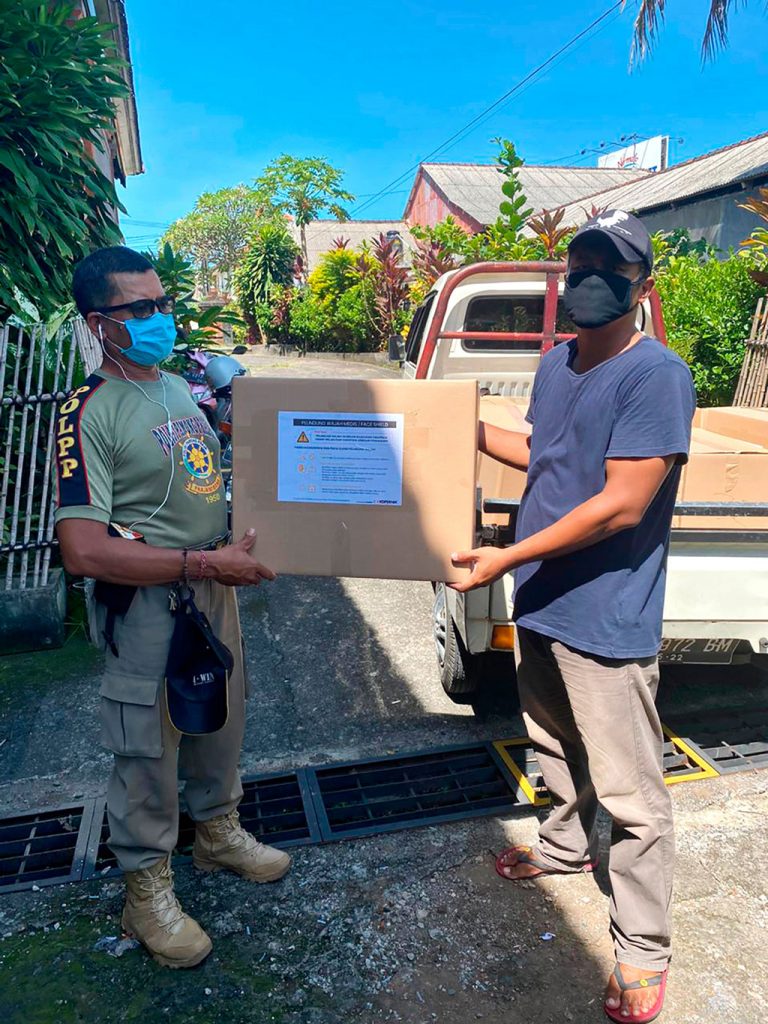
Clearly, Kopernik knows they cannot work alone. The Bali community has banded together to create a strong force to tackle Covid-19 and its effects on livelihoods.
Head to www.kopernik.info/donate to see how you can help Kopernik’s Covid-19 Bali Emergency Response.

